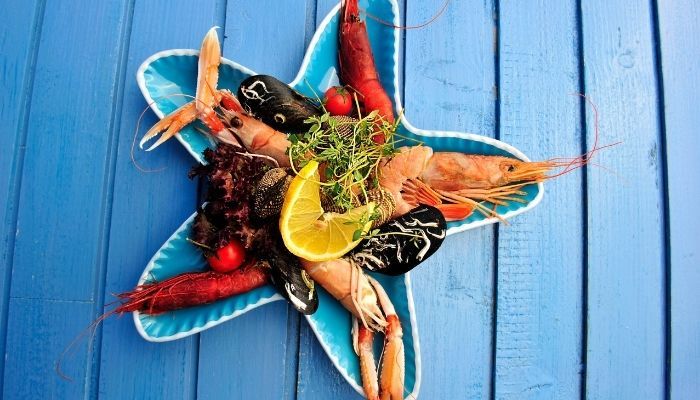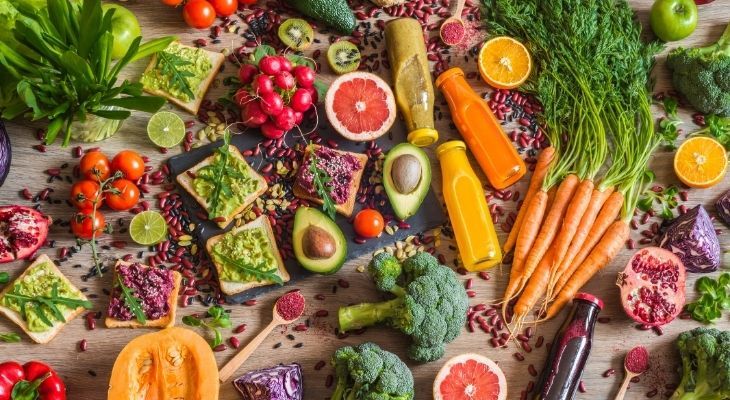The Rise and Rise of Plant-Based Products
For an industry already worth hundreds of millions of dollars a year in Australia, what does the future hold for the plant-based sector and its customers? Here’s some food for thought.
Australia’s plant-based protein sector is already big business. But according to a report released last year, it could be worth as much as $3 billion on its own by 2030. While Australians are already spending $150 million a year on plant-based protein products, in 10 years that may jump to a whopping $4.6 billion.
“Anyone who still thinks plant-based is simply a fad has got their head in the sand,” says Australian-based food futurist Tony Hunter. “When you start thinking of the big companies behind plant-based products as technology companies rather than food-production companies – which is actually a really accurate way of looking at them – it’s easier to appreciate that the plant-based sector is on an exponential growth curve rather than a linear one. Expect to see rapid growth in this market in the next few years.”
Further proof the sector is only going to grow larger is the new Future of Protein Forum. An initiative that brings the National Farmers’ Federation together with a couple of other parties, it launched in August, intent on helping Australia’s agriculture industry be on the front foot to realise the opportunities the alternative proteins sector will deliver.
Among those is the opportunity to supply plant proteins to key export markets, some of which have reported an increase in plant-based interest and demand in the wake of COVID-19.
Here are five other plant-based trends to look out for …
1: Vegans and vegetarians are no longer the target market
Not too long ago, plant-based products existed purely to give vegans and vegetarians more options. Not any more. “The push now is to make them mainstream,” says Hunter. “It’s why the term ‘plant-based’ is much more widely used to describe these products now. It’s far more inclusive and provides access to a much bigger market than vegan and vegetarian.”
Case in point – while 12 per cent of Australians identify themselves as vegetarian, one in three Australians is actively reducing their meat consumption.
In line with this, plant-based products are gradually making their way out of dedicated ‘alternative’ or ‘health-food’ sections in supermarkets and stores, to occupy space alongside their animal-based counterparts. “It’s all about improving familiarity,” says Hunter. “And it works – research shows sales of plant-based meat alternatives jump by about a quarter when they’re sold in the meat section.”

2: Plant-based products will deliver genuine health benefits
Increasingly, things like price, familiarity and taste won’t be enough to win a customer’s affection or spend in the plant-based sector.
Sinomi Hood, co-founder of Byron Bay’s Nutty Bay agrees – and is organically already ahead of the curve. Nutty Bay’s plant-based fermented cheeses were created to satisfy Hood’s passion for eating whole, healthy foods made with good-quality ingredients. The fact they’re plant-based – and therefore vegan – is a bonus.
“The way I see it, what’s the point of making a decision to eat a certain way purely because it’s good for the environment or for animal welfare, if it’s not good and genuinely healthy for us as people, too?” she says. “And just because something’s plant-based or vegan certainly doesn’t mean it’s good for you.”
In contrast, on top of being made from carefully selected and sourced ingredients, Nutty Bay’s fermented products are good for gut health.
Hunter agrees the ‘functional’ side of plant-based foods will attract the spotlight in future. “Plant-based products are often naturally rich in fibre, certain varieties of which have prebiotic qualities,” he says. “But I agree we’ll likely see plant-based products focusing more and more on becoming ‘functional foods’.”
3: Plant-based seafood will be the new ‘meat’
Hunter believes that while there’s still room for plant-based meat substitutes to improve, they’re no longer the main growth area. “Plant-based seafood will be the next big thing,” he says. “As people have shifted away from red meat over the years, it’s put strain on the ocean’s resources. Plus, on top of declining fish stocks, people are more aware of issues like microplastics in seafood. Combined, it’s created the ideal setting for plant-based seafood products to make their mark.”

4: Hybrid products will start appearing
With so many Australians trying to reduce their meat intake rather than eliminate it all together, Hunter sees a great opportunity for ‘hybrid’ offerings. “That may be sausages that contain less meat because they’re bulked up with highly visible vegetables or burger patties that contain half the quantity of meat because they’re mixed with a plant-based component which can’t be detected,” he says. “Hybrid products will inevitably grow in availability and popularity.
“As well as the plant-based sector becoming much more highly segmented in itself, I can see a time where we have meat at one end, plant-based at the other and a third hybrid category sitting in the middle.”
5: Products will stop being ‘substitutes’
“I see this as being plant-based 3.0 rather than 2.0,” says Hunter. “But the time will come when plant-based products will become products in their own right, rather than – in the case of plant-based proteins – being compared with meat or seen simply as ‘meat alternatives’.
“In the not-too-distant future, these products will be setting the bar far higher when it comes to everything from taste to quality and price, than the one set by meat. And in time, that’ll likely happen in every area where animal-based products have got competition from plant-based ones – cheese, butter, milk, everything.”
It’s clear that, with so many opportunities and ways to innovate in the plant-based sector, not only is it a market that’s just getting started here in Australia, reaching that $4.6 billion target may not be as ambitious as it sounds. Watch this space.
-
Get your FREE ticket
- REGISTER FOR FREE
